Local News
Here are new 6 California laws that aim to crack down on crime – NBC Los Angeles
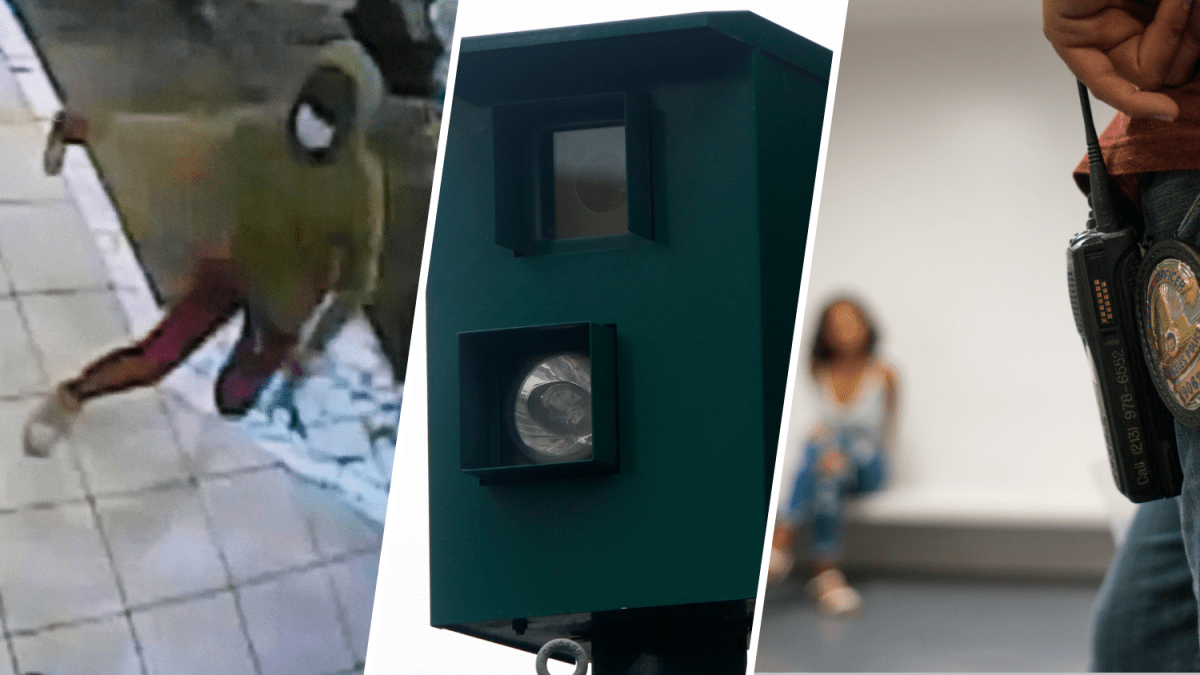
As countless images and videos from violent retail thefts, deadly crashes on Pacific Coast Highway and mass shootings in other parts of the country shocked many Californians in recent years, some of the bills signed by Gov. Gavin Newsom last month appear to address public safety concerns.
Here are six new laws that aim to reduce crime across the Golden State.
Tougher penalties for robberies
A new law targets large-scale thefts, including sledgehammer crimes, flash-mob attacks, smash-and-grab robberies.
Prosecutors will be required to impose harsher sentences again for those who damage or destroy property valued at more than $50,000 while committing a felony.
A similar law expired in 2018. The new law will sunset by 2030.
While shoplifting has been a growing problem, large-scale, smash-and-grab thefts, in which groups of individuals brazenly rush into stores and take goods in plain sight, have become a crisis in California and elsewhere in recent years. Such crimes, often captured on video and posted on social media, have brought particular attention to the problem of retail theft in the state.
The new law is part of a bipartisan legislative package of about a dozen bills aiming to crack down on thefts, making it easier to go after repeat shoplifters and auto thieves and increase penalties for those running professional reselling schemes.
Gun control
People convicted of animal cruelty will be banned from owning a firearm for at least 10 years under the 2024 Gun Violence Prevention Act.
Animal cruelty acts include maliciously and intentionally maiming, mutilating, torturing or wounding an animal, or maliciously or intentionally killing an animal.
Supporters, including the California District Attorneys’ Association, said the law is “much-needed” because of the link between violence against animals and violence against humans.
Riverside State Senator Richard Roth and Burbank State Senator Anthony Portantino, who initially proposed the law, cited a domestic violence study that showed the overwhelming number of women in abusive relationships reported their animals were threatened, harmed or killed by their abusers.
PCH speed cameras
The city of Malibu will be allowed to add up to five speed cameras on a dangerous stretch of Pacific Coast Highway.
Among the 60 people who died on PCH in the last 15 years were four Pepperdine University students, who were fatally struck in October 2023.
The new law will allow the installation of automated speed cameras on the 21-mile stretch of the roadway.
The law goes into effect in January 2025.
Forensic services
The California Justice Department will be able to continue to provide forensic DNA services by extending funding for Prop 69, the DNA Fingerprint, Unsolved Crime and Innocence Protection Act, which was passed by voters in 2004.
The new law will also extend the sunset date for Prop 69.
At the same time, criminal fines will continue to go toward funding crime-solving DNA programs at the state Department of Justice and local law enforcement agencies.
Domestic violence
Newsom’ signing of a bipartisan package of bills means the state will establish a restitution fund for domestic violence victims while forcing restraining orders applications to be processed without delay.
Newsom’s office said the new law will help domestic violence survivors to rebuild their lives by providing them financial help through the restitution fund.
Fines and fees from white-collar criminals will go toward domestic violence victims’ restitution fund.
As another way of protecting victims, California will also require automakers to protect drivers’ data privacy.
For one, drivers will be able to terminate remote access to their cars, which will prevent abusers from tracking their victims and controlling their vehicles.
Soliciting minors
The penalty for soliciting and buying sex from minors under 16 will be raised to a felony.
Current state laws limit the penalties for soliciting a minor to a misdemeanor charge. In addition to making it a felony if the victims were under 16, the new law would also allow prosecutors to charge repeat offenders with a felony if the victims were at least 16 years old.
But the California legislation doesn’t go as far as laws in other states. In Texas, for example, an adult would be charged with a felony for soliciting a minor under 17 and could face harsher penalties if the victim was under 14.
Release of sexual predators
When the state decided to release a sexually violent predator known as the Pillowcase Rapist into Southern California’s Antelope Valley last month, community members, law enforcement officials and political leaders voiced their concerns and outrage.
“While I understand that the state performs a comprehensive study and assessment before proposing a site, nothing takes the place of the real-world perspectives that only community members can offer. I want to ensure my constituents are kept informed about this process and have every opportunity to weigh in on this decision,” Los Angeles County Supervisor Katheryne Barger, who represents the Antelope Valley area, said.
The releases of sexually violent predators are more common in rural communities across the state often without involving local authorities in the decision-making process.
Now a new law that aims to increase transparency in criminals’ releases will ensure law enforcement agencies are better informed and involved in placements.
The law also promises to provide more information about criminals and give communities more time to prepare.
Local News
Seedlings from NASA’s Artemis mission planted in Orange County – NBC Los Angeles
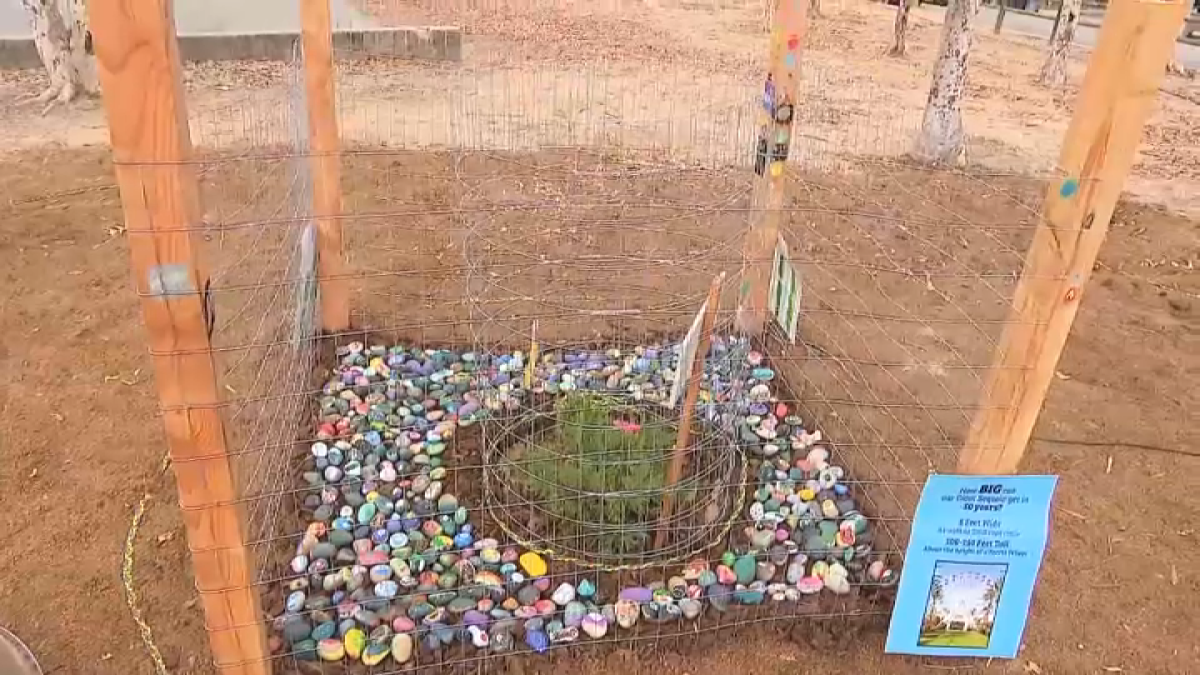
To the moon and back, twice!
After NASA flew tree seeds to the moon as part of its Artemis mission, those seeds are now seedlings, and one Orange County elementary school got the honor of planting one.
Santiago STEAM Magnet Elementary school in Lake Forest was one of 50 recipients of a “moon tree.” The school was chosen from several hundred applicants across the country to plant the seedling in its community, according to NASA.
“It’s about maybe 1 and a half feet tall. It’s bright green,” said Emily Aguesse, a sixth grade student. “And it’s very beautiful.”
Aguesse and her schoolmates won’t be around to see the Giant Sequoia fully grown. None of us will.
“It’s going to be very, very big in about 500 years!” exclaimed Aguesse.
But future kids will learn the story behind Aguesse and her schoolmates, and how the tree earned the name: Moon tree.
“(It’s) literally out of this world,” said Aguesse. “It went around the moon twice actually.”
After careful review of hundreds of applications, NASA selected organizations from across the country to receive “Moon Tree” seedlings that flew around the Moon on the agency’s Artemis I mission in 2022 to plant in their communities, according to NASA’s website.
Aimee Burdette, who teaches 4th grade at the school, said getting the moon tree was a team effort by the students, parents and community.
“They found this grant, and they worked tirelessly to apply for this,” said Burdette. “And when they saw how many things we were already doing at the school that makes stewards for a moon tree, the way we compost, the way we connect with our gardens almost every day. Yes! Of course we need a moon tree.”
Stacy Fudge is a third grade teacher who also worked on the application.
“They don’t typically give them out to schools that often,” said Fudge. “So we were one of the first school elected.”
As the tree needed a special day and tree planting ceremony, more than 500 students, parents, teachers and community members gathered Monday to plant their moon tree.
“I think having a space traveler come to our school and grow with our kids is pretty exciting,” said Liz Gibson, who was in charge of organizing the special tree planting ceremony Monday. Her son Wyatt is in 5th grade.
“I helped put the tree into the ground,” said Gibson. “It was a lot of stress because one wrong move could make all the work for nothing.”
The moon tree will grow in one of several gardens at the school.
“We are seeing the connection being built in front of our eyes,” said Wyatt’s mother. “Kids don’t always learn from hearing a story or watching a video – by creating hands on opportunities and shared experiences, they are not learning about the world from a book, but being active participants in it.”
This lesson is one from out of this world that students hope will live on for generations to come.
“I think it would be really nice to take my great grandkids to this tree and say I planted that,” said Aguesse. “And this is how big it was when I planted it.”
Local News
Operation to save Hollywood doe who has bone stuck in her mouth – NBC Los Angeles
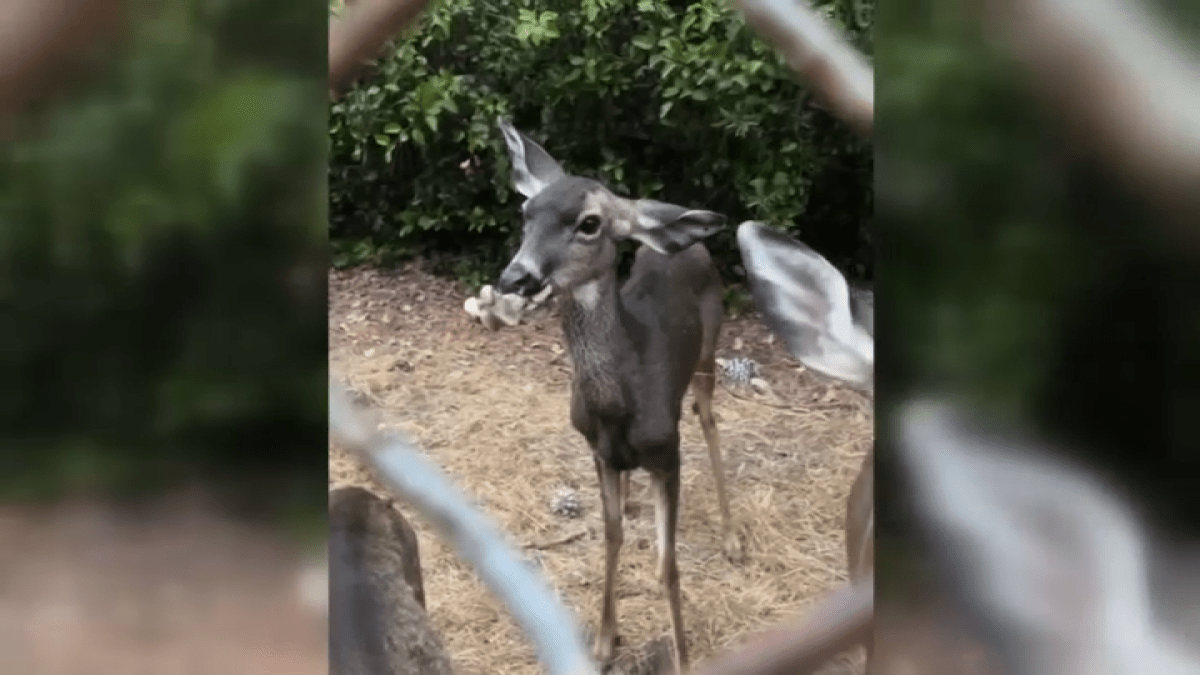
Officials Tuesday conducted an operation in Hollywood to save a deer that appears to have a bone stuck in its mouth and throat.
The Department of Fish and Wildlife closed and locked the popular entrance to Lake Hollywood as they looked for the injured deer Tuesday.
“She has what looks to be a femur bone, lodged in her mouth and her throat,” Kevin Howells, a biologist with the state agency, said.
People who live nearby alerted officials with the Department of Fish and Wildlife after the video clip of the deer began circulation on social media.
The doe appears to be part of a small herd made up of seven of eight deer that live in the lake area.
“I saw her briefly yesterday afternoon. But she went down-slope toward the water, and I didn’t have a chance to immobilize her,” Howells explained.
Officials planned to immobilize the doe with a tranquilizer dart then remove the bone and give her whatever medical treatment she needs before releasing her.
They hoped to catch her quickly as the deer may have trouble eating.
“She’s not quite emaciated yet, but she’s on her way,” Howells explained. “She’s obviously, I believe, incapable of getting water and of browsing as well.”
Browsing is how deer eat, plucking leaves or shoots for food, according to Howells.
If the bone is not removed, the doe is likely to die. And she’s susceptible to infection and predators .
The mystery part is how it happened in the first place as deer typically eat berries, nuts and twigs.
“Deer do chew on bones to get nutrients they’re lacking in their diet, so that’s a possibility,” Howells said. The doe must be in pain as it appears to be uncomfortable, he continued.
Local News
San Gabriel native fosters community of nature lovers with nonprofit – NBC Los Angeles
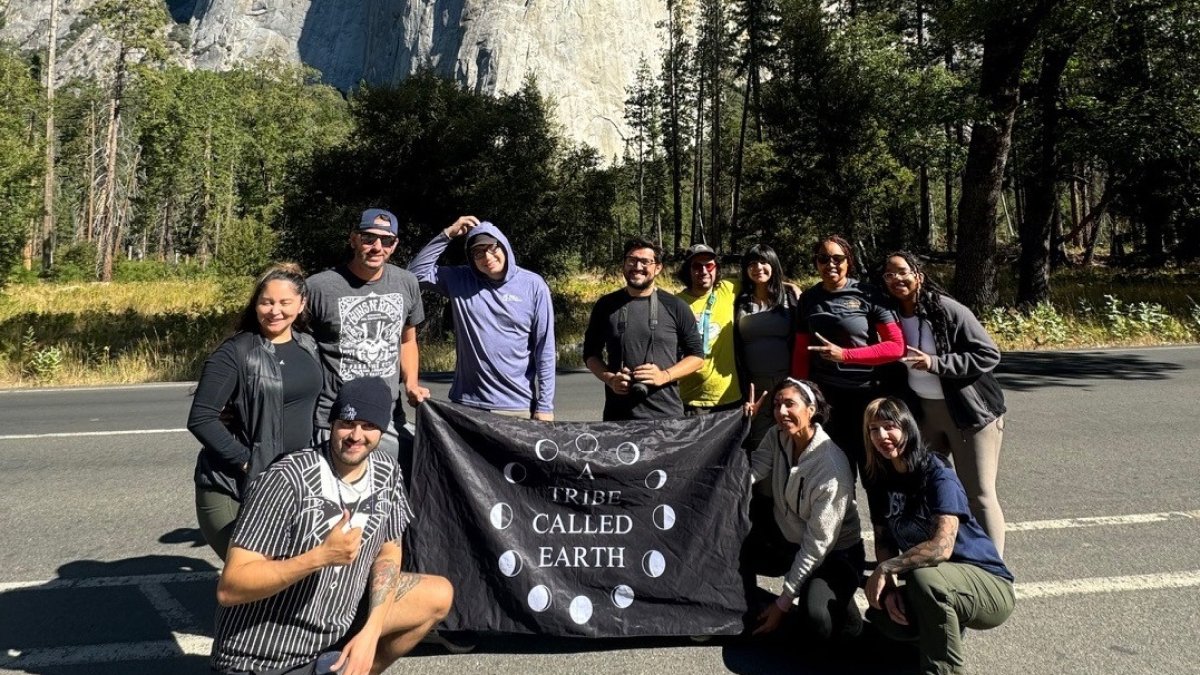
What began as a desire to show communities of color ways they can access the outdoors has grown into a nonprofit organization with devoted members that dedicate their time to teaching others how to care for the environment and each other.
We Explore Earth, a nonprofit organization based in Southern California, marries founder William Vazquez’s love for nature and community ad his wish to provide an outlet for the public to connect with the natural world and others.
Vazquez, who grew up in San Gabriel, said his upbringing is what inspired him to create the group.
“I’ve always loved the outdoors, but I’ve always seen that there’s a lack of provisions for bridging and exposing the outdoors, brands and outlets to people of color,” he said. “My parents are both Mexicans and I’m first-generation. I thought that if I haven’t been really exposed to the outdoors and all these brands and outlets, I’m sure I’m not alone in this, so I felt that was a calling.”
Planting the seed
Vazquez’ experience as a production assistant for Jimmy Kimmel Live and then an event producer for Dim Mak Records has served him well with his nonprofit.
Using that experience for his organization, he, along with other leaders and active members of We Explore Earth, host a variety of events that range from hiking adventures, environmental cleanups, movies in the park and more.
“Finally, had felt like I got what I needed to do to produce events and make my vision come to life,” Vazquez said. “I always wanted to produce events and festivals and grow my own organization where I can cultivate and create these projects with fellow like-minded individuals.”
That cultivation came in the form of local cleanups and outings that swelled into a larger movement that’s fostered a sense of community with other nature lovers in Southern California. The group emphasizes respect for the environment and acceptance for all individuals from different walks of life.
“The outdoors and nature as a whole, anywhere out in the wild, in the city, in the mountains, is meant for everyone to explore, thrive in and protect as an individual, but also as a collective,” Vazquez said.
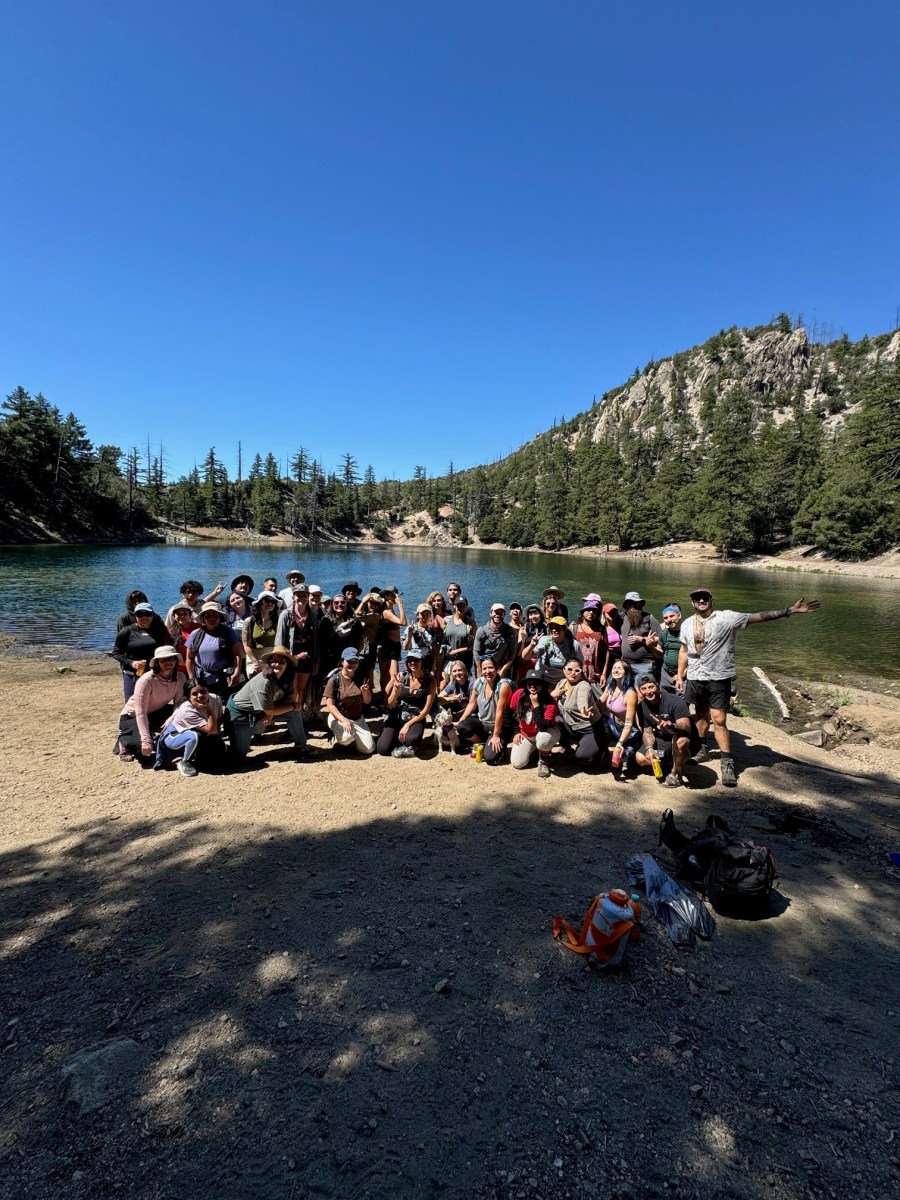
It takes a village
In hosting smaller events early during We Explore Earth’s beginning, Vazquez quickly met like-minded individuals who shared his passion for the outdoors and community. The nonprofit has since has garnered thousands of followers on its Instagram, and it’s the result of volunteers and leading members sharing the word.
“We always reference it as a plant and a lot of us individuals who are people of color are the roots of it. We’re just nurturing it, and a new root is growing here and there,” Vazquez said.
Among the leaders of the nonprofit who help Vazquez with the organization are co-leader Armando Rodriguez and workshop leader Michel Gonzales. Both became heavily involved with the group about four years ago and since have shared their unique expertise with other members.
“I felt that we gravitated towards the same goals of exploring, going out on adventures and at the same time, taking care of the trails that we so much enjoy,” said Armando Rodriguez whose focus lies in wilderness awareness and photography.
Gonzales said her quest for a sense of community blossomed into her becoming a leading participant of the organization who leads empowerment and healing-focused workshops
“I started getting involved with them because of how heart-centered this organization is,” Gonzales said. “At We Explore Earth, we always say we love you because this community loves you and loves, loves the outdoors, as well.”
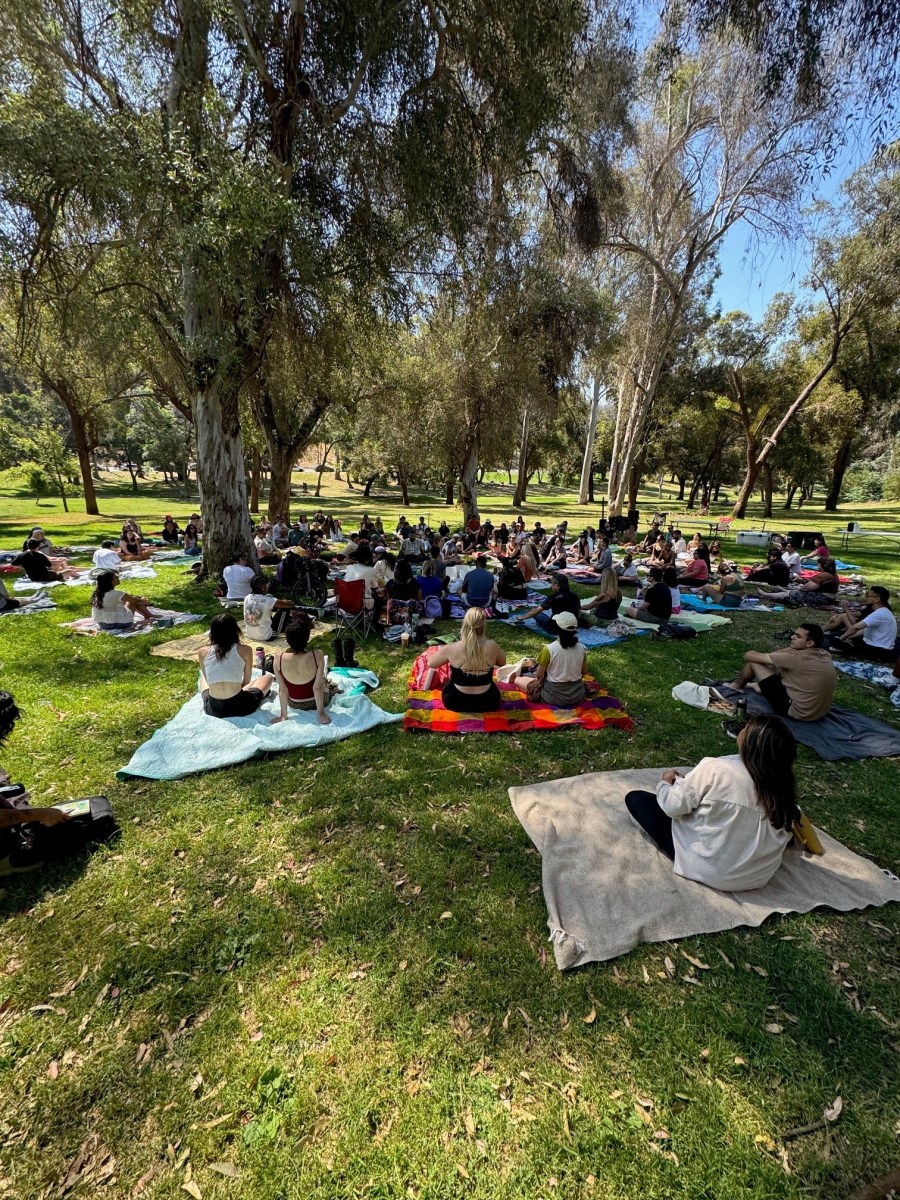
A welcoming environment
The nonprofit’s emphasis on welcoming newcomers has typically garnered new faces during nearly each one of its events. Although the group hosts outings with activities that may seem more intermediate to expert-level, its leaders are always ready to offer guidance to not only make new participants feel included, but also to navigate them safely.
“It’ definitely a safe space to explore the outdoors and going on hikes,” Rodriguez said. “You know, going solo has its risks in getting lost, getting injured and maybe not being able to know what to do in those scenarios. Going in with a group of people gives you the confidence of trusting your limitations and learning from others.”
In addition to knowledge learned at the organization’s events, participants have been known to leave with a new sense of community and connections.
“(Newcomers) start connecting and they start coming to these events together,” Gonzales said. “So, you build a community. You build friendships, and you build a safe net around this community.”
One thing We Explore Earth’s founder wishes participants walk away from after experiencing their events is the certainty that they have a place of belonging.
“I hope that they take home with them that this for them,” Vazquez said of those who join his organization’s events. “It’s for everyone, it doesn’t matter the color, their size, anything. It’s meant for everybody.”
To learn more about We Explore Earth and to keep up with its scheduled events, click here.
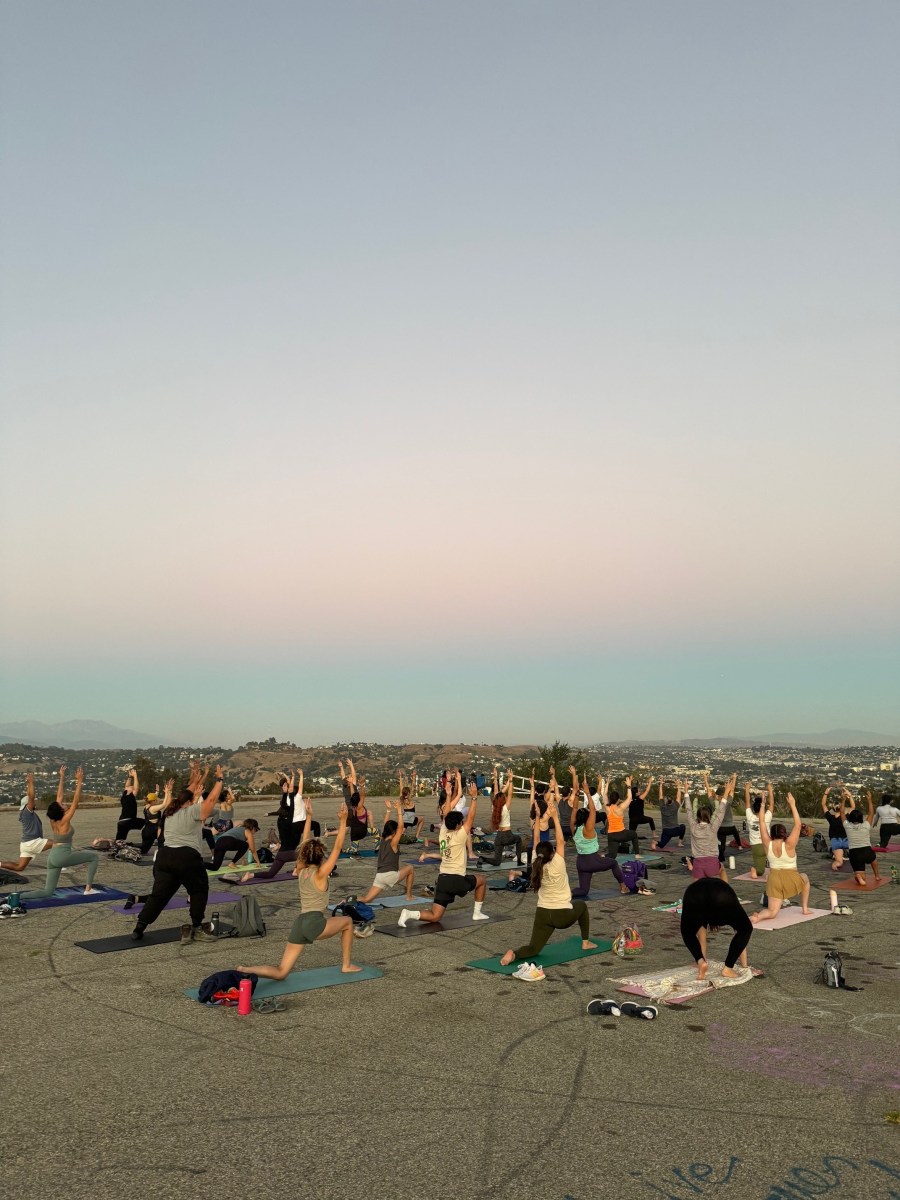
-

 News9 months ago
News9 months ago6 Ways To Attract a Rich Girl of Your Dream
-

 Finance8 months ago
Finance8 months agoWhich credit card is best for small businesses?
-

 Finance8 months ago
Finance8 months agoBest Business Credit Cards With 0% APR – February 2024
-

 Finance8 months ago
Finance8 months agoHow To Apply For A Chase Business Credit Card
-

 Finance9 months ago
Finance9 months agoLowe’s Credit Card: New Discounts on Lowe’s Purchases
-

 Finance8 months ago
Finance8 months agoLimited Time: Sign up for Chase Freedom Unlimited for a Year of Unlimited Cash Back!
-

 Entertainment9 months ago
Entertainment9 months agoNetflix Schedule January 2024
-

 Tech9 months ago
Tech9 months agoApple Vision Pro: $3,499 headset finally has a release date








